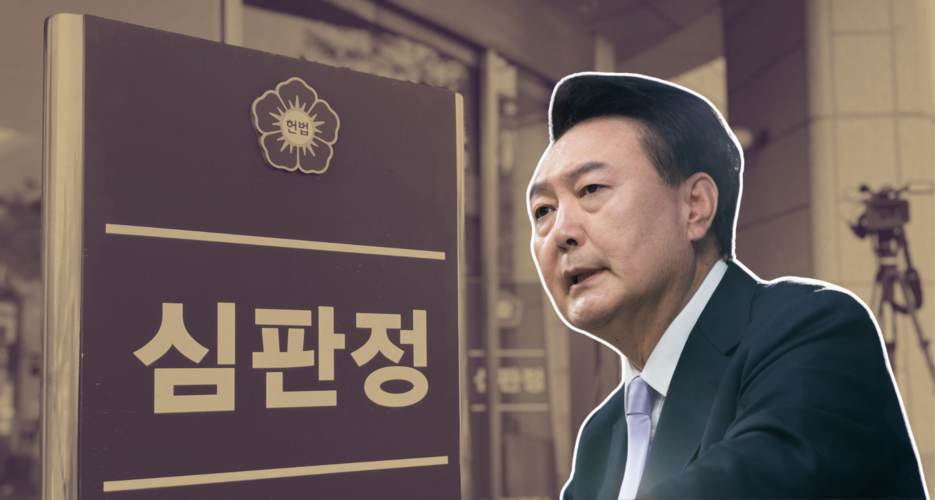Chicago Leads Federal Lawsuit against Trump Administration for Overstepping Boundaries
The litigation contends that the Trump administration has overstepped its boundaries by infringing on the constitutional division of authority, which grants Congress the control over the state’s fiscal matters. This is yet another legal battle sparked as a result of the reduction of the federal governmental bodies. Chicago is partnering with various labor unions and a select group of cities and counties across California, Texas, Maryland, and Washington. They are all part of a larger endeavor to launch a federal lawsuit to protect the employment positions of federal workers. Their central argument is that the Congress alone bears the exclusive right to modify, scale down, or structurally alter federal agencies.
Claiming that the Trump administration has exceeded its presidential authority, the lawsuit alleges that it broke the checks and balances system that provides Congress with ultimate control over the national budget and federal expenditure. The plan to trim down core governmental operations is termed as a historically unparalleled intrusion, causing disruptions in vital municipal services. A number of examples have been invoked in the case to illustrate the effects of such measures.
The decision by the Trump administration to shut down the National Weather Service is alleged to jeopardize Chicago’s abilities to adequately respond to extreme weather situations and manage extensive outdoor activities. It is proposed that this move could severely impair their potential for effective response. Additionally, reductions to the Federal Emergency Management Agency (FEMA) would hinder the disaster relief that Chicago depends on in the aftermath of state and federal crises.
The prospect of disassembling the Environmental Protection Agency is argued to be detrimental for Chicago’s efforts in cleaning up brownfield and Superfund locations, as well as other polluted sites predominantly located within ethnic minority communities. This move could lead to an overwhelming burden on these areas. Furthermore, the potential slashes to the budget of the U.S. Department of Health and Human Services could render the city less capable of monitoring and coping with health emergencies.
This could occur due to the probable termination or restrictions placed on national data collection initiatives, and by limiting access to federal specialists in the field of infectious diseases. These experts are crucial in making urgent decisions on the allocation of scarce city resources. These proposed implementations pose a risk to public safety and the basic services that residents depend on, leading the city to engage in this legal battle to sustain federal safeguards and ensure the required support persists for the people of Chicago.
The resistance against Trump’s government has been continually escalating, particularly in the strongly Democratic-leaning city of Chicago. The blueprint for a leaner federal government poses a direct threat to the welfare of the residents and the general health of the communities. Thus, the lawsuit seeks to fulfil its responsibility of challenging the hasty disassembly of the government.
The assemblage coalescing around the lawsuit makes a case that transformations in governmental structure and functions, particularly those affecting scope and size of federal agencies, should be a prerogative of the Congress alone. By these standards, the Trump administration is accused of violating constitutional principles and operating outside its executive scope.
The severe implications of the executive authority’s overreaches, as cited in the lawsuit, include potential hazards to city’s preparedness to weather events and its disaster relief capacities. Actions like discontinuing the National Weather Service or slashing funding for FEMA tend to undermine the city’s capacity to handle unexpected and large scale events.
The lawsuit also highlights environmental and social concerns, as the administration’s actions could potentially stifle remediation efforts in environmentally burdened sites located primarily within ethnic minority communities. Such actions could exacerbate existing environmental disparities.
Likewise, shrinking the Department of Health and Human Services is suggested to impede the city’s capabilities to handle public health crises. According to the lawsuit, the city’s decision-making capacities could considerably suffer from a lack of access to federal infectious disease specialists, leading to potential misallocation of city resources.
The effects echoed fear not only on public safety but also on the quality of public services which constitute the backbone of a functioning society. The lawsuit exists as an embodiment of the city’s resolve to protect these federal safeguards.
The antipathy seen against the administration has manifested more stridently in predominantly Democratic regions, with the city of Chicago leading the resistance. The lawsuit comes as a formal declaration of this opposition.
The proposed dismantling of federal structures encapsulates a profound and prima-facie threat to public safety and the overall health of communities. Hence, the lawsuit asserts its objectives of defending the constitutional order and resisting what is referred to as a frivolous deconstruction of governmental mechanisms.
Ultimately, the legal challenge strives to curtail any potentially detrimental consequences from the downsizing of the federal government. Its primary aim to ensure the well-being of its citizens by opposing unchecked governmental overreach.

